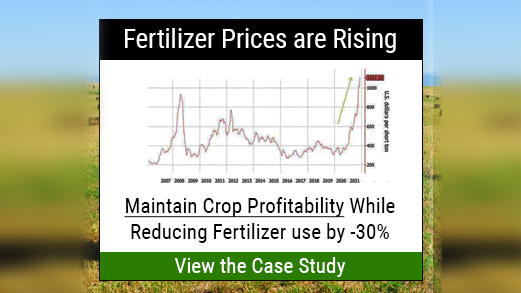Ag Groups Abandon Sustainability Standards Initiative
Agricultural representatives withdrew en masse today from the Leonardo Academy’s sustainable agriculture standard setting initiative, citing systemic limitations and chronic anti-agriculture biases inherent in the writing Committee structure set up for this initiative. A letter (see below) addressed to Michael Arny, Leonardo Academy president, was signed by ten national agricultural-organization voting members on the nearly 60-member Committee, and endorsed by 46 other agricultural organizations nationwide. The Leonardo Academy and its principal financial sponsor, Scientific Certification Systems, had undertaken an effort in 2007 to develop a draft national standard for sustainable agriculture under a consensus-based process governed by the American National Standards Institute (ANSI).
“This decision was not made easily,” said Ron Moore, American Soybean Association and Acting Chair of the Leonardo Academy’s standard Committee, “for it means walking away from nearly two years of investment in active Leonardo Committee membership, Subcommittee leadership, and writing group participation. However, farmers will embrace a standard for sustainability only if they are allowed fair representation in its development. Unfortunately, mainstream agriculture has been given a decidedly minor voice in a Leonardo Academy process dominated by others. We will pursue, in another venue, the development and implementation of a valid approach to agricultural sustainability,” Moore said.
“Despite Leonardo’s claim that the committee is made up of members from ‘across all areas of agriculture,’ in reality the committee is dominated by environmental groups, certification consultants, agro-ecology and organic farming proponents,” said Russell Williams, American Farm Bureau Federation. “Based on their recent actions, it is apparent that these groups have neither the vision nor desire to speak for mainstream agriculture or the 95 percent of farmers who will be materially affected by any resulting standard.”
“U.S. farmers are concerned about the long-term sustainability of their farms and their place in society,” added Moore. “In the next 20-30 years agricultural output must double in order to feed and clothe the projected population growth. We support the goal of sustainable agriculture and intend to continue our efforts to achieve that goal.”
“Our willingness to participate in this process was predicated on a desire to produce an ‘on-farm’ standard that would result in broad adoption,” said Ken McCauley, National Corn Growers Association. “However, from the actions of others on the Committee it is now clear that this cannot occur within the Leonardo Academy process. It has become clear that the Leonardo Academy process is structurally biased against a balanced and open analysis of sustainability and modern agriculture.”
From the start, the Leonardo initiative was poorly executed. In a Sept. 11, 2008 letter to ANSI, the US Department of Agriculture challenged Leonardo’s ANSI accreditation as a standards development organization for numerous fundamental flaws in Committee setup and management. Despite these Committee limitations, agricultural representatives worked within the Leonardo Academy process for nearly two years to achieve broad consensus on achievable environmental, economic and social components of sustainability. Recent actions by others on the Committee undercut this consensus and agriculture’s contributions.
The withdrawal of modern agricultural representatives from the Leonardo Academy’s sustainability initiative is an indication of their lack of confidence in its process, not a lack of commitment to agricultural sustainability. More than 900 million people worldwide suffer from malnutrition today, so having a global sustainable supply of food is of prime importance. U.S. agriculture is committed to the pursuit of a valid approach to sustainability, but in another venue.
Below is the letter agricultural representatives wrote to Leonardy Academy President Michael Arny in which agriculture as a whole withdraws from the committee developing national sustainability standards for agriculture.
Dear Mr. Arny:
U.S. farmers are concerned about the long-term sustainability of their farms and their place in society. For this reason, farmers will embrace an achievable roadmap for the environmental, social and economic aspects of sustainability, but only if they are part of its development. We are committed to working toward such goals in the hope that widespread adoption will contribute to real sustainability of American agriculture.
This cannot occur within the Leonardo Academy process.
A successful American National Standards Institute (ANSI) sustainable agriculture standard cannot be developed without the fair representation and participation of those representing the overwhelming majority of U.S. agriculture which constitutes 95 percent of production. Unfortunately, mainstream agriculture has been given a decidedly minor voice in Leonardo Academy’s process. This is the same inequity that was initially challenged by the U.S. Department of Agriculture.
Despite the Leonardo Academy’s claim that the Committee is made up of members from “across all areas of agriculture,” in reality the Committee is dominated by environmental groups, certification consultants, agro-ecology and organic farming proponents. These groups have neither the vision nor desire to speak for mainstream agriculture and the 95 percent of farmers who will be materially affected by any resulting standard.
After thoughtful consideration, the undersigned Voting Members withdraw from Leonardo Academy’s initiative to develop a sustainable agriculture standard for ANSI consideration. We support the goal of sustainable agriculture and intend to continue our efforts to achieve that goal, but it has become clear that the Leonardo Academy process is biased against a balanced and open analysis of modern agriculture.
This decision was not made easily, for it means walking away from nearly two years of investment in active Leonardo Academy Committee membership, Subcommittee leadership, and writing group participation. Our willingness to participate in this process was predicated on a desire to produce an “on-farm” standard that would result in broad adoption. However, based on actions this summer, continued efforts cannot and will not overcome the fatal, systemic limitations and chronic biases that are inherent in the structure set up for this initiative.
Over 900 million people worldwide suffer from malnutrition today, so having a global sustainable supply of food is of prime importance. In the next 20-30 years agricultural output must double in order to feed and clothe this projected population growth. Success in meeting this demand will come only from productivity advances through modern farming technologies and germplasm for food, feed and fiber.
The undersigned Voting Members formally withdraw from the Leonardo Academy’s initiative to develop a sustainable agriculture standard for ANSI consideration. Also attached are the names of allied organizations that support our decision to withdraw. We will pursue, in another venue, the development and implementation of a valid approach to agricultural sustainability.
Voting Members of the Leonardo Academy Sustainable Agriculture Committee:
- Russell Williams, American Farm Bureau Federation
- John T. Allan, American Frozen Food Institute
- Ron Moore, American Soybean Association
- Betsy Peterson, California Seed Association
- John Thorne, CropLife America
- Douglas B. Johnson, Environmental Intelligence, Inc.
- Jeffrey Barach, Grocery Manufacturers Association
- Ken McCauley, National Corn Growers Association
- Bill M. Norman, National Cotton Council of America
- Robert Guenther, United Fresh Produce Association
Allied Organizations:
- Agricultural Retailers Association
- American Feed Industry Association
- American Seed Trade Association
- Aqua Bounty Technologies
- BASF
- Bayer CropScience
- Biotechnology Industry Organization
- California Association of Nurseries and Garden Centers
- California Association of Wheat Growers
- California Bean Shippers Association
- California Farm Bureau Federation
- California Grain and Feed Association
- California Pear Growers
- Colorado Potato Administrative Committee Area II
- California State Floral Association
- California Warehouse Association
- Corn Producers Association of Texas
- Dow AgroSciences
- Empire State Potato Growers
- FMC Corporation
- Gowan Company LLC
- Idaho Potato Commission
- Illinois Corn Growers Association
- Indiana Corn Growers Association
- Kansas Corn Growers Association
- Kentucky Corn Growers Association
- Maine Potato Board
- Mid America CropLife Association
- Minnesota Area II Potato Growers Research and Promotion Council
- Minnesota Corn Growers Association
- Missouri Corn Growers Association
- National Alfalfa & Forage Alliance
- National Association of Wheat Growers
- National Cattlemen’s Beef Association
- National Council of Farmer Cooperatives
- National Potato Council
- Nebraska Corn Growers Association
- Northwest Horticultural Council
- South Carolina Corn & Soybean Association
- Southern Crop Production Association
- Syngenta
- The Fertilizer Institute
- USA Rice Federation
- Washington Association of Wine Grape Growers
- Washington State Potato Commission
- Western Plant Health Association
Click on the following links to get some more background on this issue:
- Leading Off (Jan. 2008)
- National Agriculture Sustainability Standard: A Bad Ideal As Proposed (Aug. 2008)
- Measuring Sustainability (Nov. 2008)










